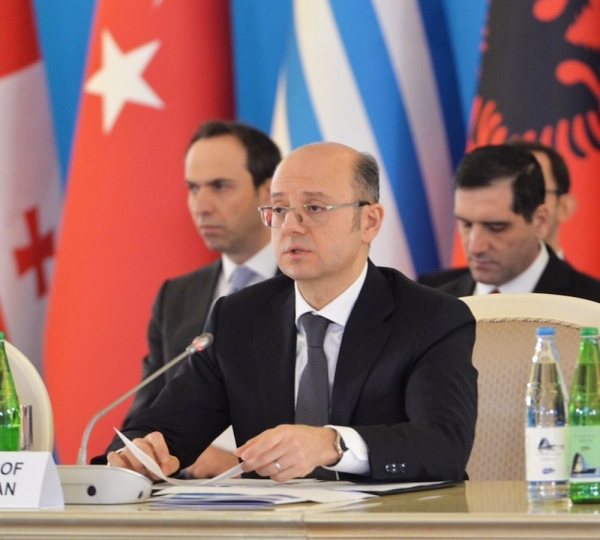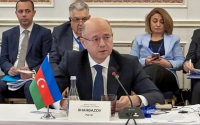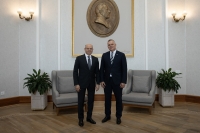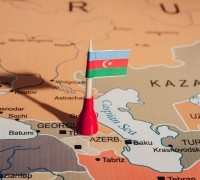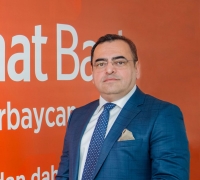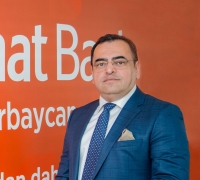Caspian Energy (CE): Mr. Shakhbazov, the TANAP gas pipeline was commissioned in June. Could you please tell about the nearest and long-term plans of development of this project?
Parviz Shakhbazov, Minister of Energy of the Republic of Azerbaijan:As is known, the Southern Gas Corridor (SGC) is one of the world’s largest infrastructure projects initiated by Azerbaijan and being implemented under the leadership and initiative of Azerbaijan. This project, ensuring the energy security of Europe, has boosted a growth of Azerbaijan’s influence in the international arena.
Speaking at the opening ceremony of the Southern Gas Corridor project on May 29 of this year, President of the Republic of Azerbaijan Mr. Ilham Aliyev said: “Energy security matters stay high on the global agenda nowadays, and the national security of countries largely depends on energy security as well. The Southern Gas Corridor is also a very important project in the field of diversification of energy resources, and I believe that it is an indispensable project ... The Azerbaijani gas is a new source, and the Southern Gas Corridor is a new energy belt, a project that is reshaping the energy map of Europe. The interests of all parties involved in the implementation of this project were met. This is also very important. The balance of interests was struck”.
At present, the status of the project’s implementation is as follows:
- The work on the Shah Deniz-2 project is 100% complete. Within the project, 14 subsea wells were drilled using Heydar Aliyev and Istiglal drilling rigs. The Sangachal Terminal Expansion Programme has been completed; subsea pipelines that lead to the terminal, wells, underwater infrastructure, the Shah Deniz-2 platform and the terminal were connected for the first time.
- Work on the South Caucasus Pipeline Expansion Project is 97.8% complete. 100.0% of the first gas custody transfer works were carried out, and commercial gas transportation to Turkey was launched on June 30, 2018 within the scope of the Shah Deniz-2 project.
- The official opening ceremony of a section of the TANAP gas pipeline running towards Eskisehir was held on June 12 this year. First commercial gas supplies to Turkey within the scope of the TANAP project were commenced on June 30. The initial capacity of TANAP is estimated at 16 billion cubic meters, 23 billion cubic meters in 2023 and 31 billion cubic meters in 2026.
- Works on TAP are 77.7% complete and continue according to the schedule.
As for the prospects of the Southern Gas Corridor, it should be noted that development of new interstate natural gas transmission networks will become a reliable bridge between the Caspian Sea basin and European energy markets, and diversify natural gas routes for the Southeast European countries. This creates conditions for implementation of the Ionian-Adriatic Pipeline, which will bring gas to new markets through Albania, Croatia, Bosnia and Herzegovina, and Montenegro. On August 25-26, 2016, during the Dubrovnik Forum Azerbaijan, Croatia, Albania, Montenegro and Bosnia and Herzegovina signed a Memorandum of Understanding on a forthcoming construction of the Ionian Adriatic Pipeline. In addition, on 15 February of this year during the 4th Ministerial Meeting of the Southern Gas Corridor (SGC) Advisory Council Albgaz, Monteneqro Bonus, BH Gas (Bosnia and Herzegovina) and Plinacro (Croatia) signed the Letter of Intent to set up a new company for designing the Ionian-Adriatic Pipeline.
At the same time some volume of Azerbaijan gas to be transported to Europe via the Trans Adriatic Pipeline, which is part of the Southern Gas Corridor, will be delivered to Bulgaria via the Greece-Bulgaria Interconnector.
CE: What impact will the solution of the issue of the Caspian Sea status have on the investment activity in the Azerbaijan sector of the Caspian Sea?
Parviz Shakhbazov: As is known, following the long diplomatic negotiations the Convention on the Legal Status of the Caspian Sea was signed on August 12 of this year in Aktau, Kazakhstan, during the 5th Summit of the Heads of State of the Caspian littoral states with the participation of the heads of state of Azerbaijan, Iran, Russia, Kazakhstan and Turkmenistan. The Convention will greatly facilitate exploration, production and transportation of oil and gas resources in the region and regulate the use of water resources. According to rough estimates, 6.5 billion tonnes of oil and gas reserves in the Caspian Sea were approved, and there are also probable reserves of oil and oil equivalent. Projected reserves are 1.5 times higher. Thus, the signing of the document, besides other areas, opens up new opportunities for cooperation in the energy sector as well.
CE: Turkmenistan is implementing the TAPI project. Is a possibility of Azerbaijan’s joining this project is considered, since India is the fastest growing market in the world?
Parviz Shakhbazov:On December 11, 2010, the official representatives of the four countries signed the intergovernmental agreement on the Turkmenistan-Afghanistan-Pakistan-India (TAPI) pipeline in Turkmenistan.
The TAPI project is a project developed by the Asian Development Bank. The pipeline is expected to transports Caspian gas to India via Turkmenistan, Afghanistan, Pakistan. Construction work on the project began in Turkmenistan on December 13, 2015.
TAPI Pipeline Company was established in 2014 between the Turkmen state concern Turkmengaz, the Afghan company Afghan Gas, Inter State Gas Systems (Private) Limited of Pakistan and the Indian company GAIL.
The 1,814-kilometer pipeline will start from the Galkynysh gas field in Turkmenistan, go alongside the Kandahar–Herat Highway in Afghanistan, and then via Quetta and Multan in Pakistan. The final destination of the pipeline will be Fazilka near the border between India and Pakistan.
The total length of the pipeline will make 1,814km, of which 214 km go through Turkmenistan, 774 km – through Afghanistan and 826 km from Pakistan to Fazilka.
The groundbreaking ceremony of the Afghan section of the project was held in February, this year.
Currently, the matter of joining the TAPI project is not on the agenda of our country.
CE: Could you please tell about the work being done to develop renewable energy sources?
Parviz Shakhbazov:Despite the fact that Azerbaijan is rich in energy resources and recognized as an energy exporter worldwide, the use of renewable energy sources has always been in the focus of attention in the Government.
The use of renewable energy sources plays an important role in ensuring the country’s energy security, reducing emissions into air and saving natural resources.
Conducted surveys and scientific studies prove that our country has great potential in this area. Thus, the recent assessments have shown that our country has 15,000 MW of the wind energy potential, 8,000 MW of solar energy, 900 MW of bioenergy, which altogether makes 23,900 MW. In addition to the above, the country’s mountain rivers have significant potential for electricity generation. At the same time, it should be noted that the analysis carried out by many international organizations points out that our country has even a higher potential.
The Strategic Roadmap for the Development of Public Utilities (Electricity, Heat, Water and Gas) in the Republic of Azerbaijan was endorsed in the Republic of Azerbaijan in 2016, and the increased use of alternative and renewable energy sources was identified as one of the priorities of the energy policy of the country.
According to the Roadmap, the plans by 2020 envisage putting in place 420 MW of new power generation capacities, using alternative and renewable energy sources, including 350 MW of wind energy, 50 MW of solar energy and 20 MW of bioenergy.
The Ministry of Energy is taking measures to ensure the support of many international organizations for the implementation of targets aimed at creating a mechanism for legal and economic regulation in the field. First of all, efforts are focused on putting in place necessary legislation and on improving the existing legal framework. At the same time, measures are being taken to assess the country’s readiness to use renewable energy sources, to strengthen the existing power grid and to integrate renewable energy sources into the grid, to secure attractiveness of this area for private investment, to adapt the tariff methodology to the market principles, to implement pilot projects and to form business models.
The European Union, the International Energy Charter, the Asian Development Bank, the European Bank for Reconstruction and Development, the International Renewable Energy Agency and many international organizations are supportive of these efforts.
At present, our main ambition, along with public investments, is to draw private investments into the use of renewable energy sources and ensure attractiveness of the area for private investment.
The Ministry is taking measures to encourage the private sector, including foreign companies, to invest in the sector. Many international companies, including Siemens Gamesa, Total, Hyundai Engineering, Engineering, Equinor, TEKFEN Construction and Installation Inc. and CENAY Construction from the Republic of Turkey, Hevel Solar from the Russian Federation, Masdar from the United Arab Emirates, China Power Engineering and Consulting Group Ltd. (CPECC) from the People’s Republic of China, Aloe Private Equity from France, Ballast Nedam from the Netherlands and Nebras from Qatar have expressed interest in investing in our country and submitted their proposals for cooperation.
It should be noted that the implementation of construction and infrastructure projects based on the «Build-Manage-Transfer» model, along with the exemption of investors from taxes and fees, is one of the steps taken to attract private investment. According to the relevant legislation regulating the energy sector of the Republic of Azerbaijan, capacities being built up at the stations, which operate on renewable energy sources, are guaranteed without any restrictions.
However, international experience shows that the use of a feed-in tariff (FiT) for projects with renewable energy sources is also of great importance, and work on a legal framework in this area is currently underway.
These steps will ensure development of the energy sector in Azerbaijan, taking into account the most modern experience and requirements, as well as environmental security of the country.
CE: Could you please tell about the results of the visit of the Federal Chancellor of Germany, Madam Merkel? Will Germany exchange the brand-new technologies in the energy sector with Azerbaijan?
Parviz Shakhbazov: Germany and Azerbaijan actively cooperate in the political, humanitarian and economic fields. Energy is one of the most important areas of cooperation. First of all, it would be appropriate to note the existing cooperation.
Oil and oil products have a large share in the trade turnover with Azerbaijan - Germany’s main trading partner in the South Caucasus. It should be noted that in the first half of this year oil exports increased by 68% to $317 million compared to the same period of the last year.
As is known, the CQD project, initiated and lead by Azerbaijan, contributes to ensuring European energy security. The German Government is constantly demonstrating its political and financial support for the CQD project.
At the same time Germany is one of the buyers of gas from the Shah Deniz field, and a gas purchase deal was signed with UNIPER about the purchase of 1.45 billion cubic meters of gas.
UNIPER is actively involved in various projects implemented in Azerbaijan. The construction of new steam turbo-generators in at Azerkimya PU at the Ethylene-Polyethylene Plant and the feasibility study of increasing the efficiency of gas supplies in Baku and the Absheron Peninsula could be mentioned as examples. Other projects are being discussed with the company.
Significant projects have been implemented by German companies also in the electricity sector.
For example, Siemens successfully built the Sumgait Power Plant with a capacity of 525 MW, the SCADA system and some substations.
In addition, German companies VPC and Enerco successfully cooperate in order to improve the efficiency of the country’s energy system. VPC has developed a report on the diagnostics of the country’s energy system, and Enerco has developed a program on how to optimize and restore the country’s generating capacity and an action plan.
The State Commission was established to identify causes of the recent accident in the energy system of Azerbaijan and the Commission involved these companies into the investigation process.
Renewable energy is one of the areas with great prospects for cooperation with Germany.
German companies are interested in this area and are involved in the development of feasibility studies for wind, solar and bioenergy plants, as well as in the repair and rehabilitation of the existing plants.
As for prospects of expanding cooperation with German companies, we believe that such fields as oil, petrochemicals, gas, electricity and renewable energy sources open up great opportunities.
With that, there are great opportunities for further development of cooperation in the energy sector, including:
- Increased participation of German companies as investors and contractors in enhancing the generating capacities, including renewable energy sources in the country;
- Organization of production of some equipment and units in the field of renewable energy sources;
- Participation of German companies in the construction of substations and high-voltage transmission lines;
- Implementation of joint projects in petrochemistry;
- Implementation of projects aimed at increasing the efficiency of gas supplies and reducing losses.
I believe that Ms. Merkel’s visit will further enhance cooperation between the two countries.
Thank you for the interview




